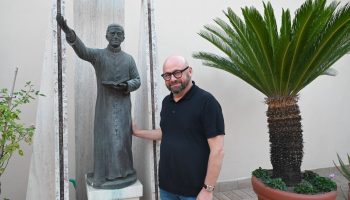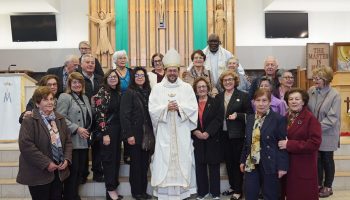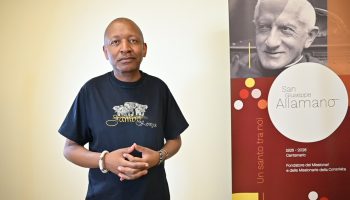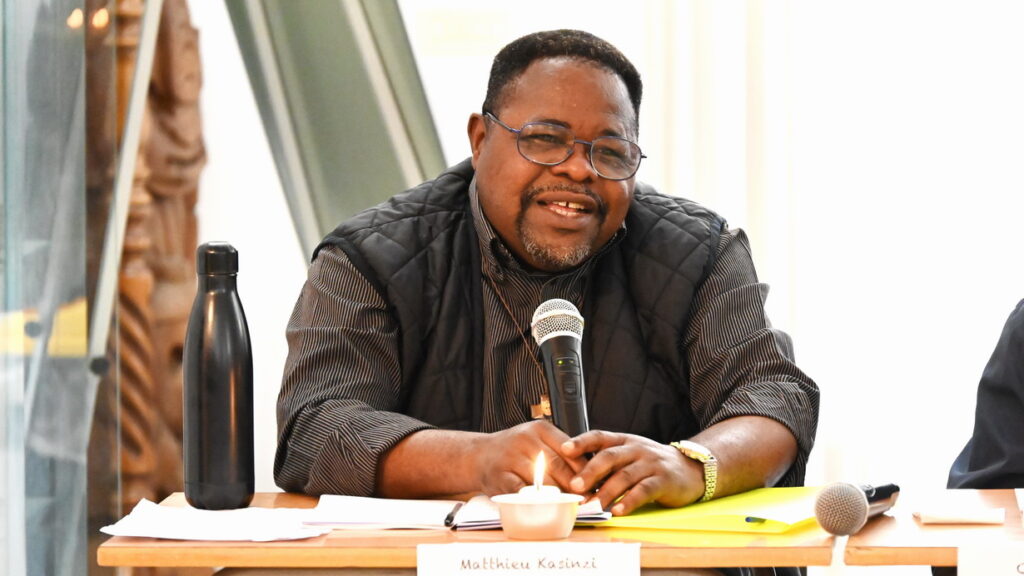
The Consolata missionary, Father Matthieu Kasinzi Mbuta , 57, speaks about the war situation in the Democratic Republic of Congo, underlining the indifference of the international community and the strong appeal for peace by the Church.
By Jaime C. Patias *
On January 27, 2025, the M23 rebel army attacked Goma, a city of 2 million inhabitants, the central base of the United Nations in Congo (MONUSCO), and the region’s capital, one of the richest area of minerals in the world. The insurgents took control of Goma and then advanced to Bukavu, the second city in the east. The insurgents also occupied the mining centers of Rubaya and Nyabybwe where coltan and cassiterite are extracted. This last conflict alone has caused more than 7 thousand deaths and over 300 thousand displaced people.
“This war did not start today,” recalls Father Matthieu Kasinzi , born in Kimpanda ( Bandundu ), now a missionary in Kinshasa. The wars that have devastated the DR Congo since the 1990s have always had two common denominators: the possession of natural resources and the question of identity and power. It is estimated that over the years there have been between 5 and 6 million deaths and over 7.8 million refugees and displaced people. More than ten thousand cases of boys, girls and women who have suffered sexual violence have been reported.
A war for control of minerals
“This war began because of the country’s riches: rich in people and minerals (gold, diamond, uranium, coltan, cobalt…). And these riches provoke the jealousy and interests of many. That’s why this war lasts so long, the interests are many,” says Father Kasinzi .
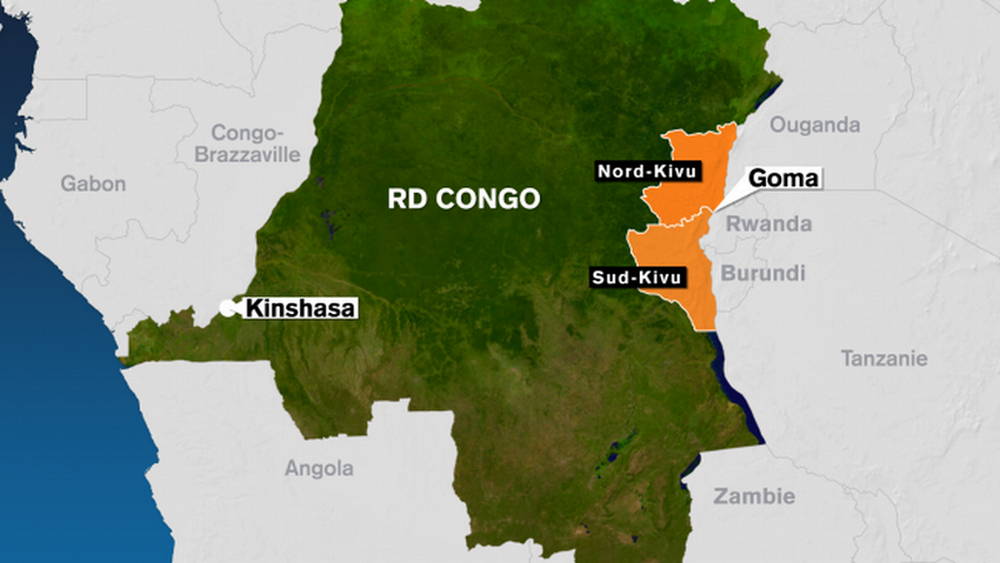
The missionary, who during his formation did his novitiate in Mozambique, studied theology in Kinshasa and after ordination worked in the missions in Ethiopia and Djibouti, compares the situation in the DR Congo to the story of the parable of the Good Samaritan (Lk 10, 25-37). “Congo is the man who has fallen into the hands of bandits, enemies, multinationals, exploiters… who do all this under the eyes of the international community. And everyone, as in the parable, sees the fallen Congo, half dead and passes by, without finding a solution. Congo seems abandoned to itself and this is very worrying. There is indifference from the international community even though Pope Francis and the Church of Congo have appealed to stop this war”.
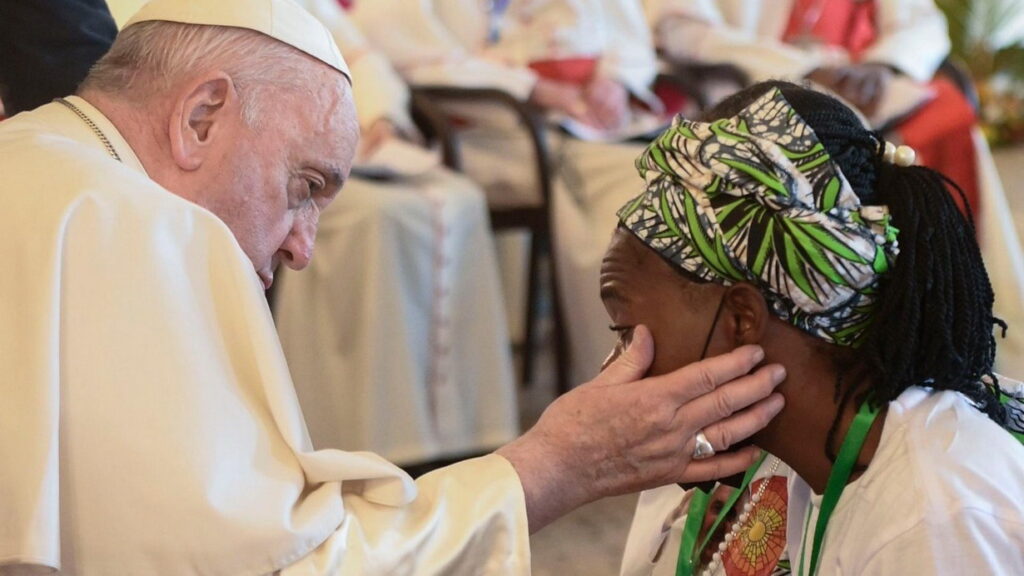
Pope Francis caresses a victim of violence. Photo: Vatican Media
Pope Francis’ visit to Congo in February 2023 was very important, because looking at the reality he said “hands off Congo”, recalls Father Kasinzi . “This was a strong call that we Congolese and many other people appreciated. The Catholic Church, represented by the Episcopal Conference, made the situation known to the whole world and asked for help to find a solution and achieve peace”.
Father Kasinzi praises this initiative because “the Church is among the people, in the villages and is there to call, recall and question. Even the protestant Church has agreed to share these initiatives in favor of dialogue because we do not want war, war destroys, war kills, war does not bring peace. There are differences but they will have to agree to work together, to live together and find peace”.
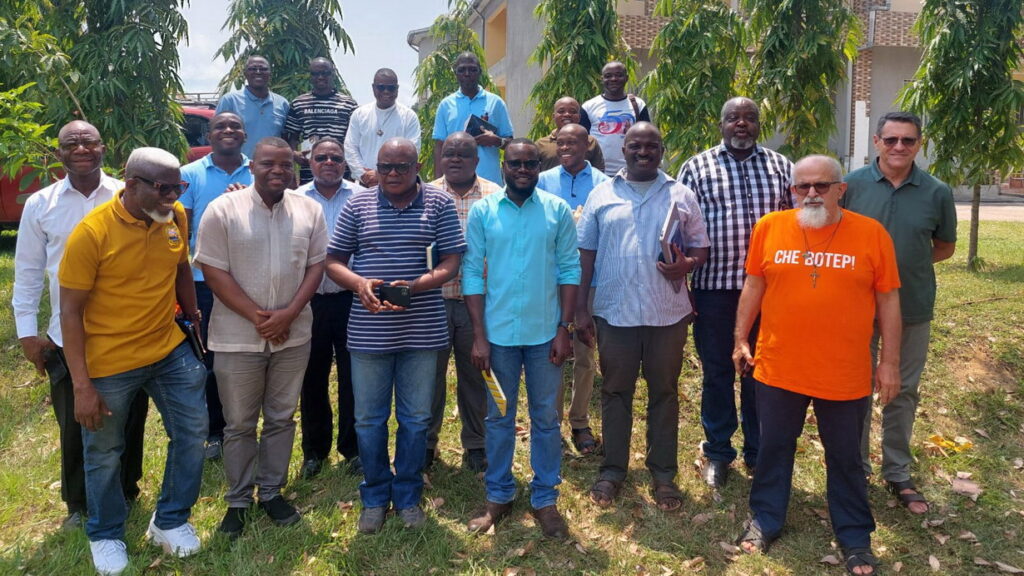
Group of Consolata Missionaries with the General government in Kinshasa. Photo: IMC RD Congo
The Consolata Missionaries
Present in Congo since 1972, the Consolata missionaries currently work in the area of Isiro , in the north, but also in Kinshasa. “During this moment of suffering we are with the people. We work in the outskirts of Kinshasa in the parish of Saint Hilaire, a neighborhood with many people, and we encourage them to always have faith in God especially during this Year of the Jubilee of Hope, we are all pilgrims and as pilgrims, we must walk towards peace. We Consolata missionaries accompany our people with this spirit of not giving up, and always having faith in God. I believe that one day the sun of justice will rise and there will be peace”.
While calls for peace and for a truce seem far away, there are fears that the Congolese war could turn into a war that might involve other countries in Africa, worsening the already dramatic humanitarian situation.
* Father Jaime C. Patias, IMC, Office of Communications.

